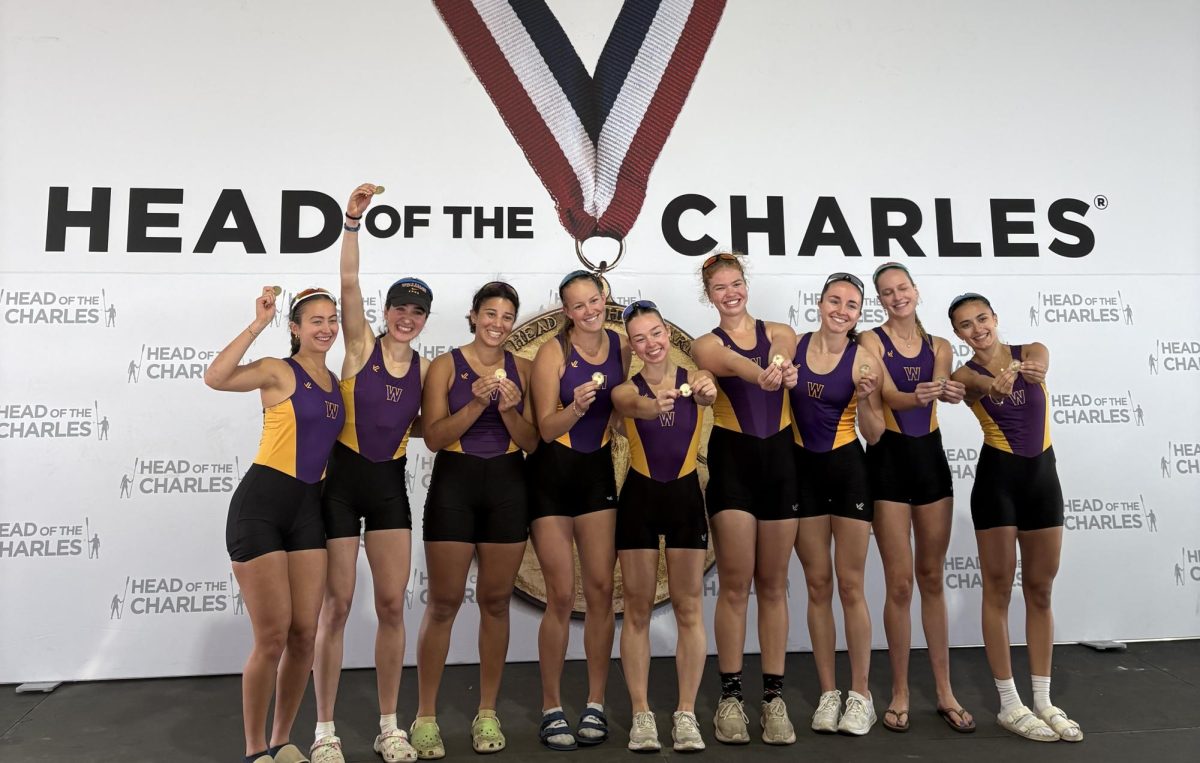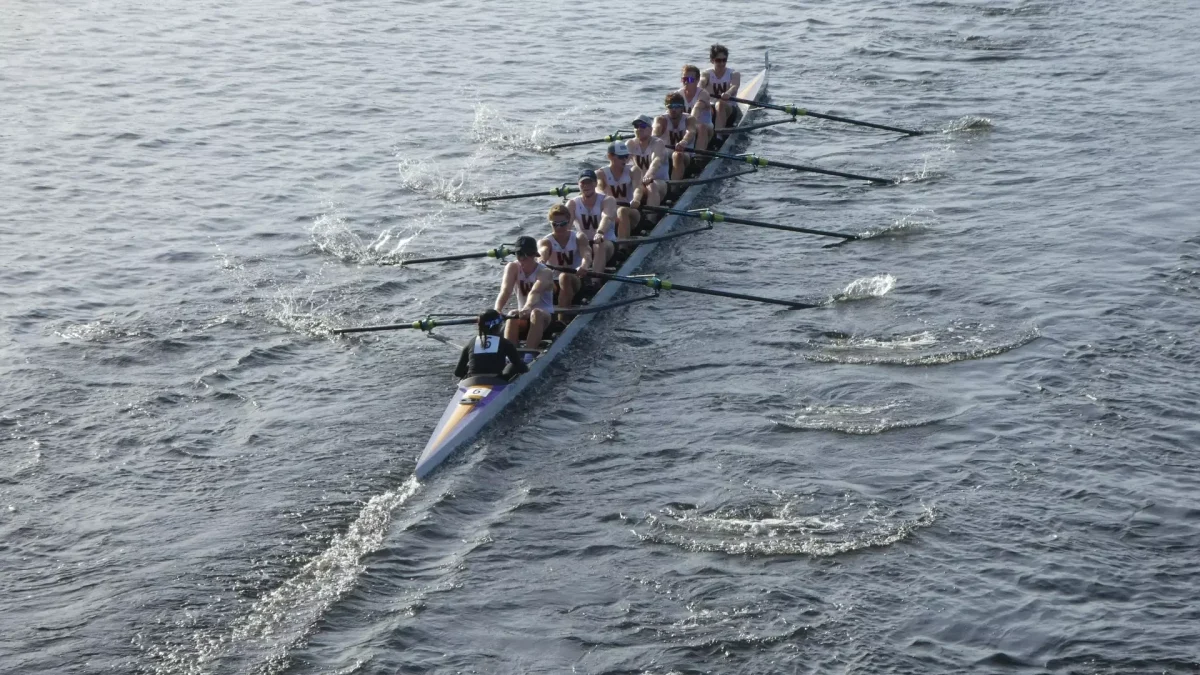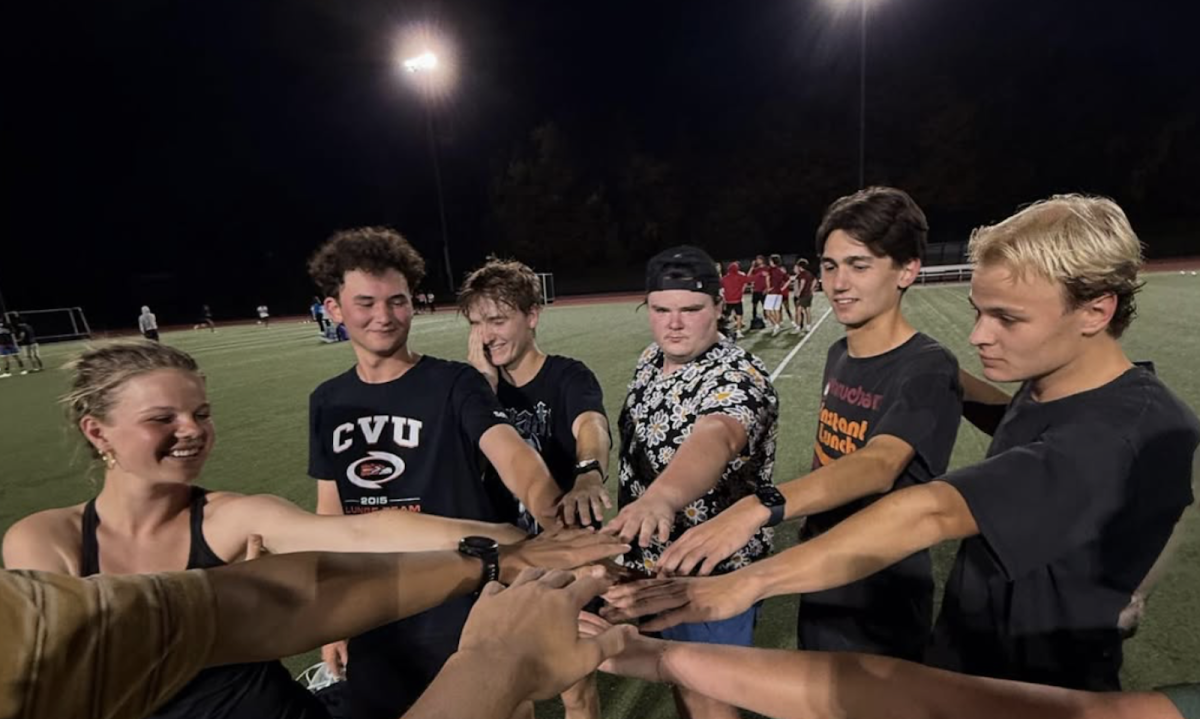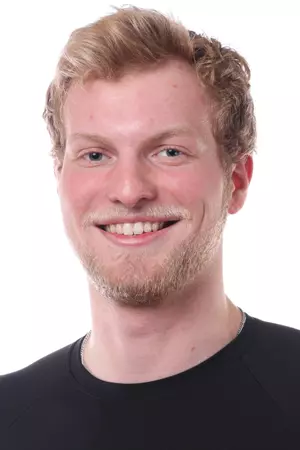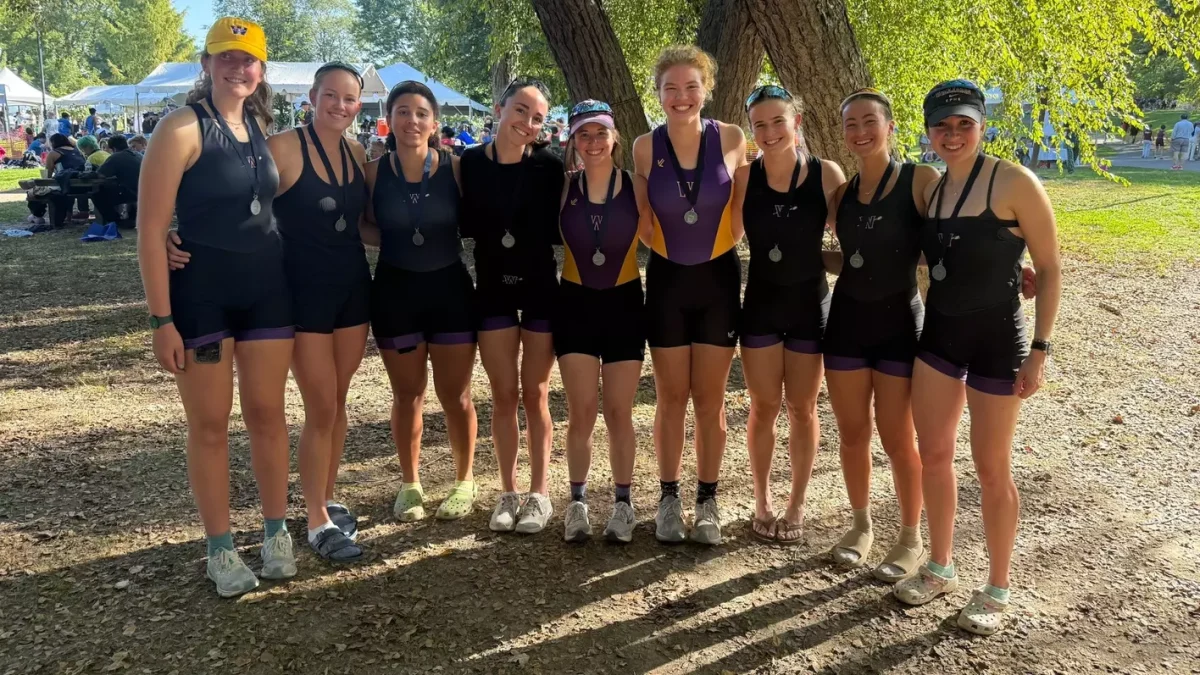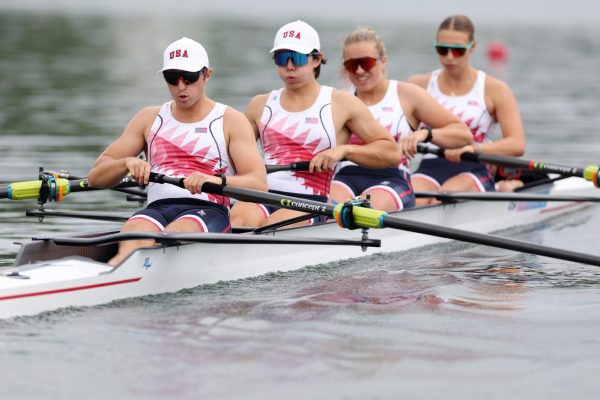
“I think they were a little overrated, to be honest,” Paralympic rower Ben Washburne ’23 said of the viral chocolate muffins at the Olympic Village. “I should have maybe tried a bigger sample size, but people were loving them. People were stealing them out of the dining hall.”
Muffins aside, Washburne found great success at the 2024 Paralympic Games in Paris, earning a silver medal in the Mixed PR3 Coxed Four event. After qualifying for the Games at the 2023 World Rowing Championships in Belgrade, Serbia, Washburne spent the last year in Cambridge, Mass., pursuing a high-intensity training plan and working at Intersect Power, a green energy company.
In an interview with the Record, Washburne discussed how Paralympic rowing has impacted his relationship to his disability. “I actually hadn’t ever met anybody else who was born with a club foot, which is what my disability is, before doing Para rowing,” he said. “[My teammates and I] actually all have the same disability, and I think that’s a thing where we can all really relate to each other in both the challenges of that in everyday life and then the challenges in rowing in particular.”
In January 2024, Washburne traveled to Florida for the selection camp. The pool included rowers from the 2023 World Rowing Championships, many of whom were relatively new to the U.S. Paralympic team, as well as returning athletes from the 2021 Tokyo Paralympic Games.
After arriving in Florida, athletes spent a few days settling in and running casual drills, but the stakes soon increased as rowers began seat racing. “It was very much a battle for every seat,” Washburne said.
After Washburne was selected for the team, his training plan intensified, with long, early morning workouts followed by shorter workouts in the late afternoon.
As the Games approached, his nerves intensified as well. “For the longest time, I tried to just not really think about it,” he said. “But by the time we got to the Paralympic Village in Paris — which [was] probably a week and a half before our race — that’s where it started to get real.”
The Paralympic Village was made up of dozens of ten-story apartment buildings that each housed a country’s team, and all athletes had access to a dining hall the “size of a warehouse,” Washburne said.
The Paralympics were special, Washburne said, because they united athletes with disabilities from around the world. “You’re seeing how everyone is dealing with and overcoming their situation, to be in this moment,” he said.
Washburne also praised the efforts to equalize the Paralympics and Olympics. “I was consistently surprised and impressed by how good of a job they did for equality between the Olympic experience and the Paralympic experience,” he said. “Apparently, that is not how it has been in the past. People were telling me that things used to be very unequal, and so I think that is pretty awesome that it’s gotten to that point.”
Team USA competed twice, finishing first in its heat before moving onto the finals. Heading into the final regatta, Great Britain was the favorite, but Washburne and his boat gave them a run for their money. “We pretty quickly turned it into a two-boat race,” Washburne said. “They separated pretty definitively by the end of the third 500, but we still had overlap with them the whole time.”
“At that point, it was just [like], ‘We’re going to try to push them as hard as we can and push ourselves as hard as we can, because there’s no reason not to and maybe they’ll make a mistake,” he said. “They didn’t end up making a mistake.”
Washburne and his teammates ultimately came in second, and he made it to his first Paralympic ceremony. “It was a lot of emotions,” he said. “I was thinking about all of the investment that had gone in to that moment, the different sacrifices to get there.”
One thrilling aspect of the experience, Washburne added, was competing in front of a crowd of over 10,000 people, the largest he ever experienced.
“The cheering was crazy, crazy loud, and I couldn’t hear my teammates during the sprint, which is at the very end, next to where the stands were,” he said. “And that was a really cool experience to be a part of.”



